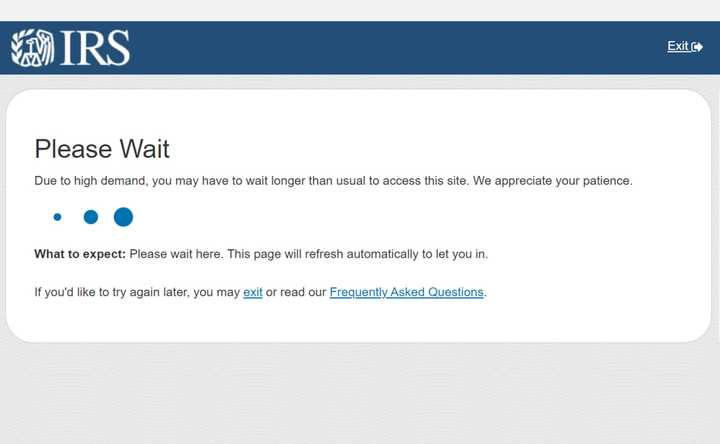The online aid is designed to let eligible taxpayers know whether or not your second stimulus payment is on the way.
It also tells you whether your first payment was directly deposited or mailed in a check or debit card in advance of the official Jan. 4 (Monday) payment date.
GO TO: Get My Payment (IRS)
There's a catch, though: It might take you awhile to get in.
Also, keep in mind: The IRS said the data is updated once daily overnight, so you don’t have to check more than once.
The second round of directly-deposited stimulus payments went to millions of Americans on Dec. 29, the IRS said. The service began mailing checks and debit cards the next day.
Paper checks "will continue to be sent through January," the IRS said Monday.
"Mailed payments will require more processing and mailing time," it added. "Those who reside abroad will have longer wait times for checks as disruptions to air travel and mail delivery in some countries will slow delivery."
Those who got their first payment directly deposited should receive their second the same way, the IRS said.
Those who got checks might instead get a debit card this time – and vice versa, the service said.
The IRS is sending Visa debit cards, issued by MetaBank, in a white envelope with U.S. Department of the Treasury seal.
Taxpayers with adjusted gross incomes for 2019 up to $75,000 for individuals get $600.
Married couples with an AGI of up to $150,000 for 2019 get $1,200 – along with an extra $600 for each qualifying child under age 17.
The payment amount is reduced with incomes above those amounts but top out at $87,000 for singles and $174,000 for couples.
There have been glitches “because of the speed at which IRS issued this second round of payments," the IRS said on Monday.
As a result, the service said, "some payments may have been sent to an account that may be closed or no longer active."
In those instances, the bank must return the money to the IRS – which means you’ll have to wait.
Eligible taxpayers who haven’t gotten their payment by April 15 can take it as a “recovery rebate” refund, the IRS said. CLICK HERE
Beyond that, the service said, “IRS phone assistors do not have additional information beyond what’s available on IRS.gov.”
Click here to follow Daily Voice Northern Valley and receive free news updates.
